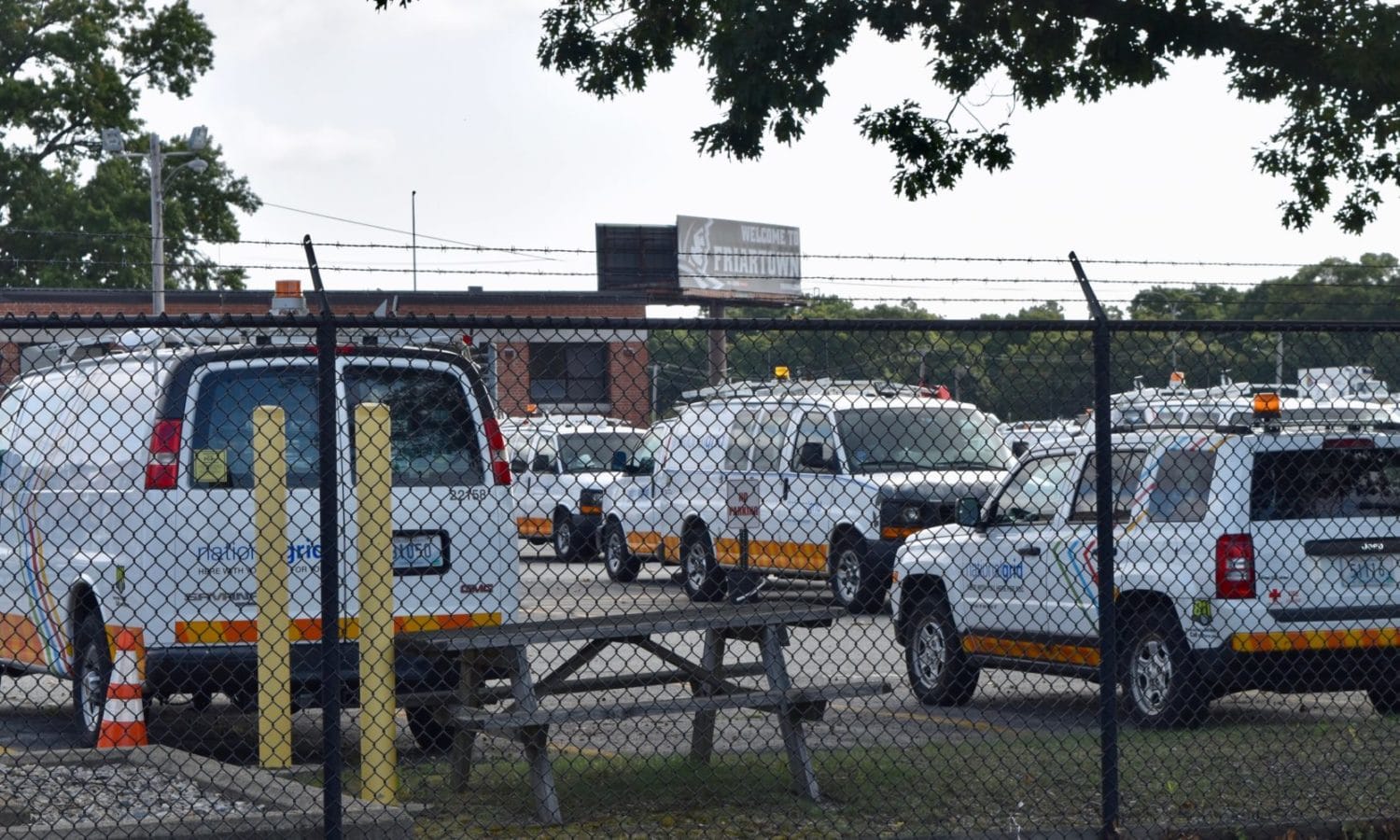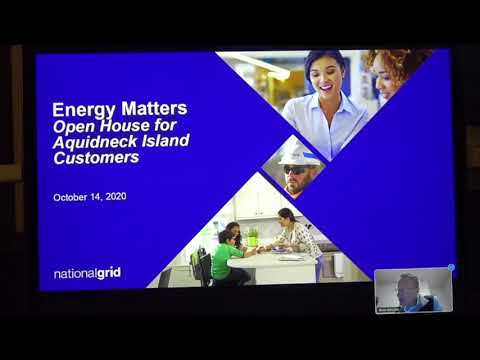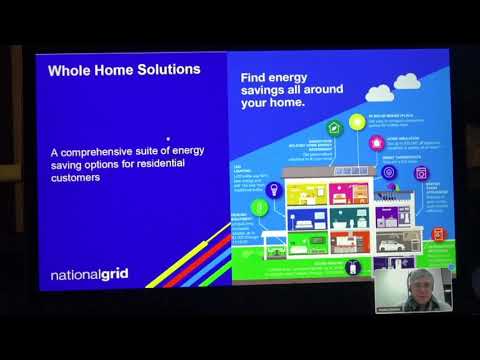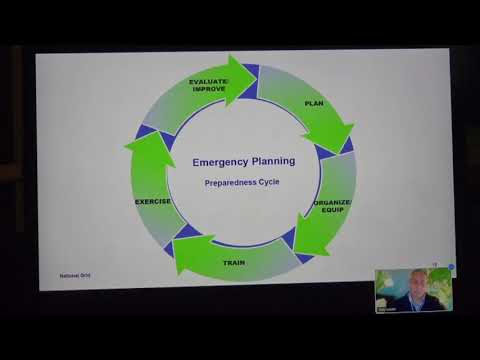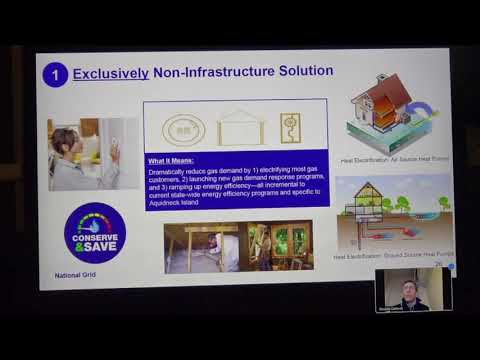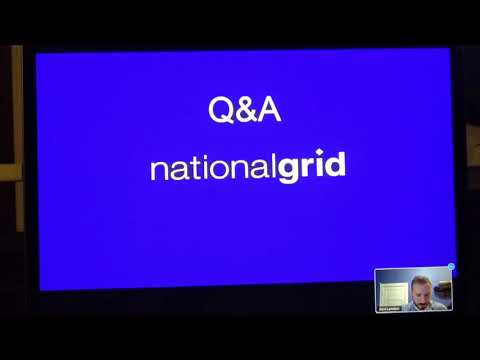National Grid presents options for Aquidneck Island’s energy future
The Non-Infrastructure Solution seeks to meet energy needs without any additional gas infrastructure and requires “a very aggressive, unprecedented level of gas demand reduction…“ National Grid hosted a virtual open house Wednesday evening, to invite dialog with residents of Aquidneck Island about meeting their energy over the next 15 years. Two years ago Governor Gina Raimondo declared a state of
October 15, 2020, 11:38 am
By Steve Ahlquist
The Non-Infrastructure Solution seeks to meet energy needs without any additional gas infrastructure and requires “a very aggressive, unprecedented level of gas demand reduction…“
National Grid hosted a virtual open house Wednesday evening, to invite dialog with residents of Aquidneck Island about meeting their energy over the next 15 years.
Two years ago Governor Gina Raimondo declared a state of emergency on Aquidneck Island when a series of failures caused National Grid to cut off the gas supply to the island, putting residents at risk during an extreme cold snap.
A report, issued by the Division of Public Utilities and Carriers (DPUC) last year, blamed the problem on contractual issues with pipeline operator Algonquin, the failure of vital National Grid equipment at they Fields Point location in Providence and a valve malfunction in Weymouth Massachusetts operated by pipeline operator Enbridge.
In response to the near disaster two years ago, National Grid set up a temporary LNG vaporization facility at the Old Mill Lane location in Portsmouth. This allows National Grid to have a backup supply of LNG on the island in the event of more failures. The Old Mill Lane facility is located in a fairly residential area where lights, traffic and noise are a bother to neighbors, even though the facility is only needed on the coldest of days. Last winter, the facility was never utilized.
To better manage capacity supply issues, National Grid has petitioned the Energy Facilities Siting Board (EFSB) for a declaratory order that would excuse temporary LNG facilities from EFSB jurisdiction going forward. The EFSB already granted National Grid a two-year exception to deal with the crisis on Aquidneck Island, but now National Grid wants to take that exception statewide and make it forever.
At the open house, National Grid presented four options that would ensure home and business energy needs on Aquidneck Island for the next 15 years:
- Non-Infrastructure Solution relying exclusively on electrification, demand response and efficiency
- LNG Solution at new location (not Old Mill Lane), including potential for low-carbon hydrogen
- Transmission Pipeline Project
- Continue Portable LNG at Old Mill Lane, with demand side measures to preserve contingency
The Non-Infrastructure Solution seeks to meet energy needs without any additional gas infrastructure. This option requires “a very aggressive, unprecedented level of gas demand reduction,” said Stephen Caldwell, Director of United States Retail Regulatory Strategy at National Grid. This options includes weatherization of homes and businesses, but also would incentivize the conversion of homes from gas to electric heating. To make this transition, two-thirds of gas customers would have to switch to electric heat pumps.
The second solution would construct a new LNG facility somewhere other than Old Mill Lane. One place to put such a facility would be on a barge on the water. Since the Old Mill Lane facility is in a fairly residential area, this would take the pressure off that community.
The third option is the addition of a brand new pipeline. The proposed pipeline seems different from the one proposed, out of nowhere, in the DPUC report from a year ago. Caldwell was quick to say that no pipeline is currently proposed, and that this option is in the report as a best guess as to what such a project might look like. The cost of the pipeline would be passed onto all Rhode Island energy consumers, said Caldwell.
Note that Governor Gina Raimondo, during a press conference following the issuance of the DPUC report, said that, “What I know to be true, and what I feel firmly about, is that the ratepayers in Rhode Island will not and should not bear the costs for [National Grid and Enbridge’s] mistakes.”
Uprise RI noted at the time that there are no pipelines installed anywhere that are not ultimately paid for by ratepayers.
“Yeah, fair enough,” replied Governor Raimondo. “It’s premature for me to answer that, but that is exactly what we need to dig into.”
The first three proposals count on the continued use of the Old Mill Lane facility until they can be implemented. The cost of each option was presented on the slide below with continued operations at the Old Mill Lance facility the cheapest, and the non-infrastructure solution being the most expensive, but with a caveat.
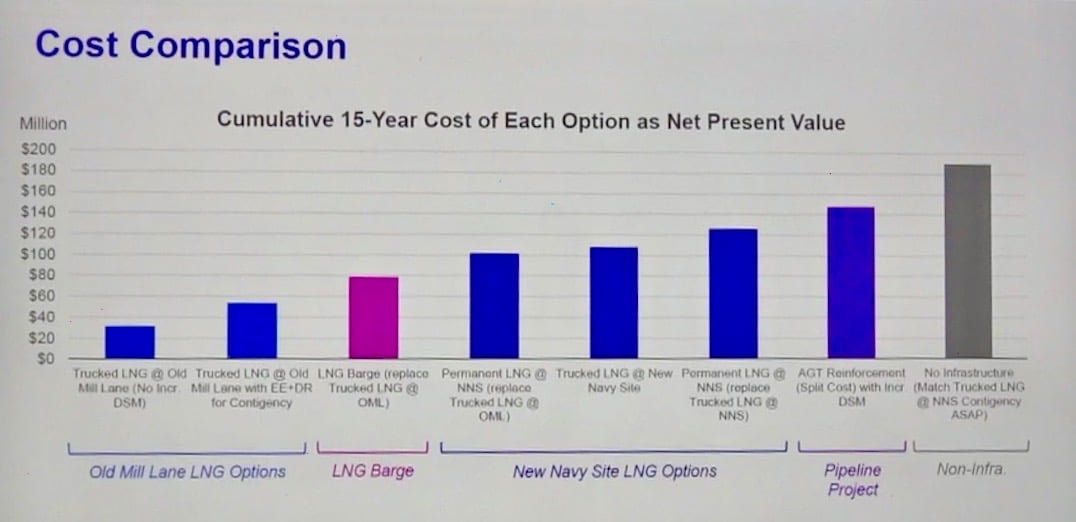
The report presented the costs over a 15 year period, but, “When you take a broader, societal long term lens, that shifts the numbers a little bit, and you end up getting the non-infrastructure solution being more competitive and about on par with the LNG barge option,” said Caldwell. “Although Old Mill Lane is still far and away the most affordable option.”
Six months ago the DPUC and the Office of Energy Resources (OER) issued a report recommending aggressive implementation of energy efficiency, the rapid expansion of the use of heat pumps and a statewide 100% renewable energy standard. The option presented by National Grid most in line with the actions suggested in the report is the Non-Infrastructure Solution.
Here’s the video:
Introductions:
The first two presentations were about weatherization and safety:
The presentation about future options for Aquidneck Island energy needs over the next 15 years”
The question and answer period was tightly controlled by National Grid, who refused to answer questions about the state of emergency two years ago because of ongoing litigation. Without access to the questions people asked (though National Grid has promised to make these questions available) it is difficult to know how well the questions were answered. No member of the public was allowed to speak.



